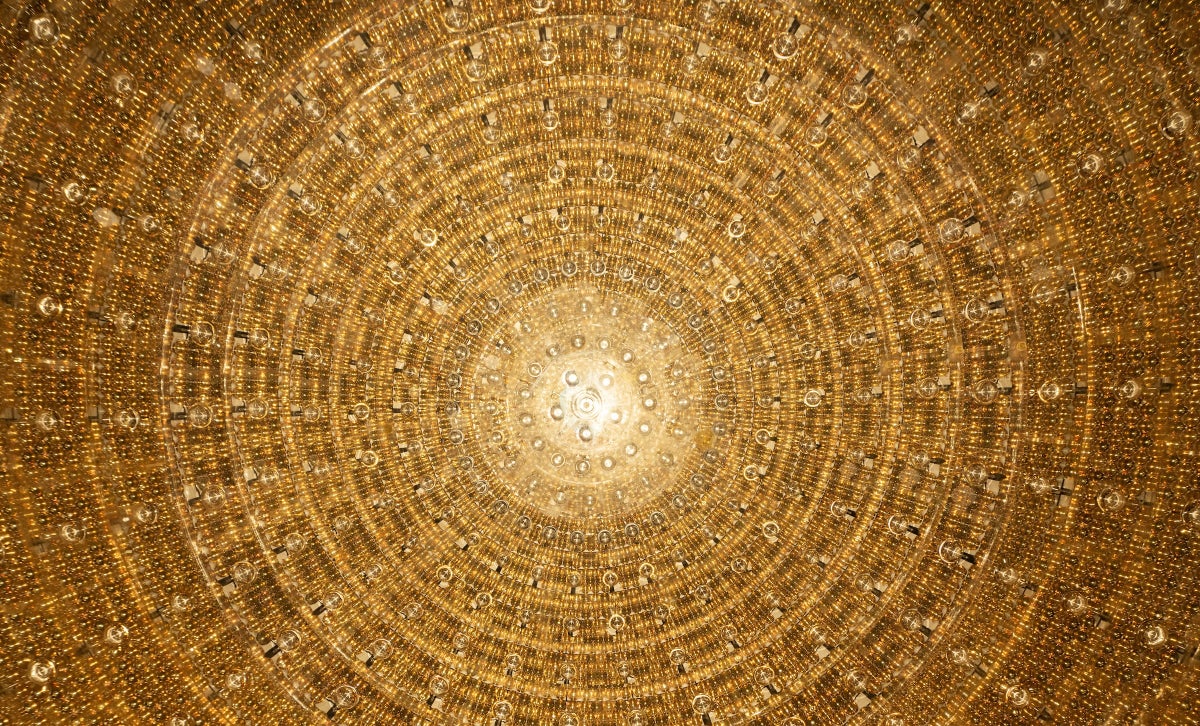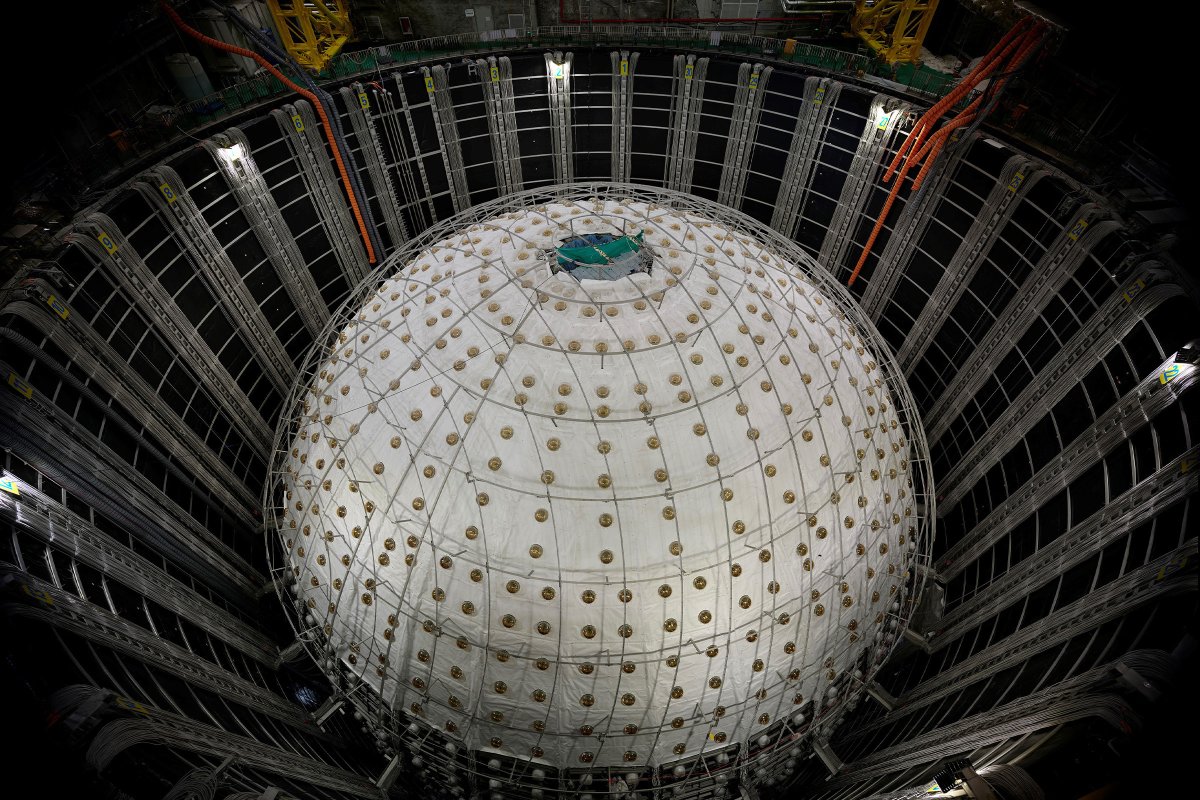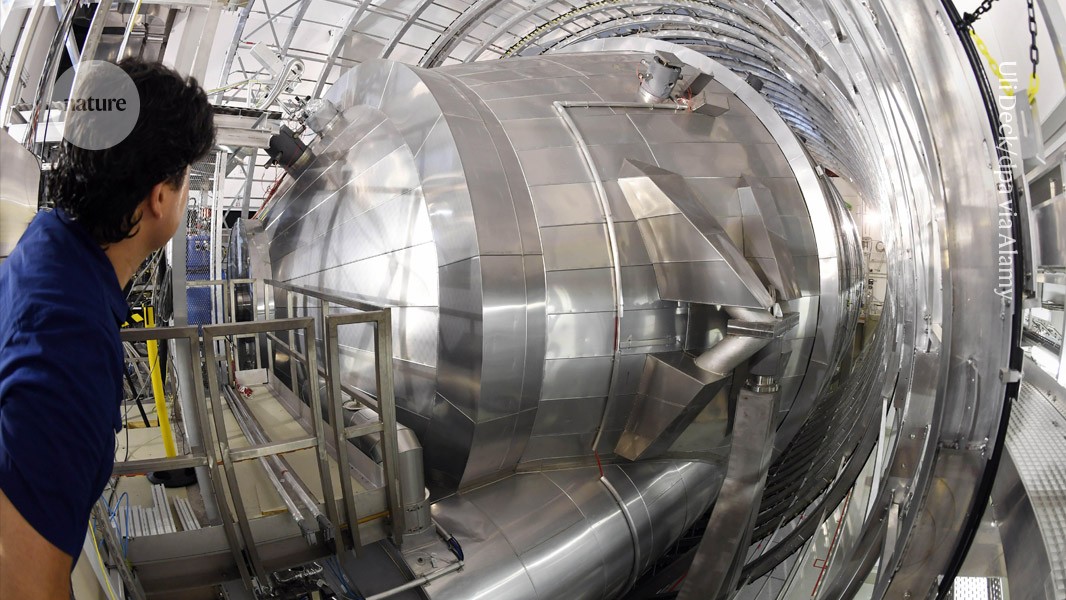#neutrinos
#neutrinos
[ follow ]
#particle-physics #dark-matter #cosmology #juno #neutrino-oscillation #neutrino-mass-ordering #dark-energy
fromMail Online
4 months agoInside China's secret lab rewriting our understanding of the universe
Deep underneath a granite hill in southern China, an enormous detector is sniffing out the secrets of the universe. This futuristic underground observatory has been built with the sole purpose of detecting neutrinos - tiny cosmic particles with a mind-bogglingly small mass. To date, nobody knows what these 'ghost particles' are or how they work. But scientists hope this $300 million lab will be able to answer these questions - vital to understanding the building blocks of the universe.
Science
fromWIRED
4 months agoThis Giant Subterranean Neutrino Detector Is Taking On the Mysteries of Physics
Located 700 meters underground near the city of Jiangmen in southern China, a giant sphere-35 meters in diameter and filled with more than 20,000 tons of liquid-has just started a mission that will last for decades. This is Juno, the Jiangmen Underground Neutrino Observatory, a new, large-scale experiment studying some of the most mysterious and elusive particles known to science.
Science
fromArs Technica
5 months agoHow a mysterious particle could explain the Universe's missing antimatter
According to physicists' best current theories, matter and its counterpart, antimatter, ought to have been created in equal amounts at the time of the Big Bang. But antimatter is vanishingly rare in the universe, raising questions about their behaviors that could explain this discrepancy.
Science
[ Load more ]




